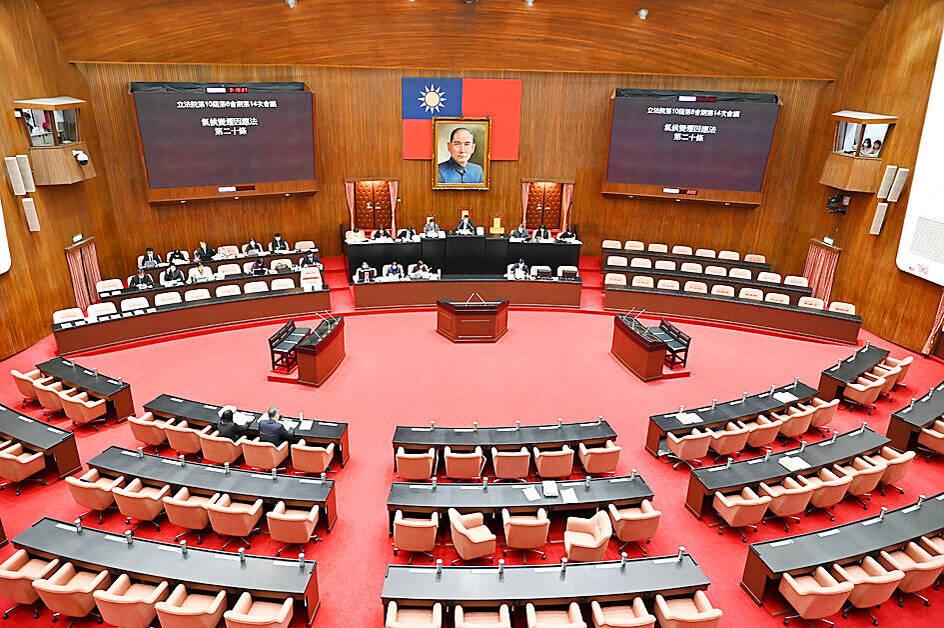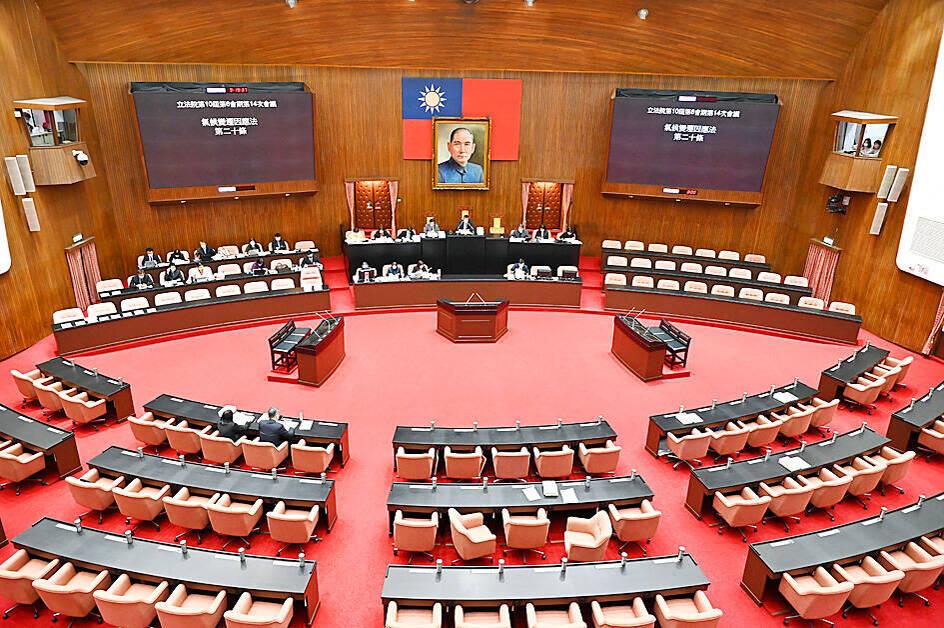By Sam Garcia / Staff writer
Although Taiwan is similarly facing resistance from opposition parties, there are two major reasons why Taiwan’s president could not simply declare martial law like South Korea’s president did yesterday, attorney Huang Di-ying (黃帝穎) said today.
South Korean President Yoon Suk-yeol unexpectedly declared martial law late last night, only to lift the order early this morning after the National Assembly rejected the notion.
Yoon accused the opposition of being “anti-state forces intent on overthrowing the regime” amid parliamentary wrangling over a budget bill.

Photo: Taipei Times
In a Facebook post, Huang said that Taiwan’s opposition has also blocked the national budget, as well as passed bills expanding their power and proposed changing Constitutional Court procedures.
People have similarly accused the opposition of disrupting Taiwan on behalf of China, “so why not emulate South Korea and declare martial law?” Huang asked.
First, the legal procedures for declaring martial law in South Korea and Taiwan are different, Huang said.
If Taiwan’s president declares martial law, it must be approved by the Legislative Yuan before it takes effect, he said.
In South Korea, the president’s declaration takes immediate effect and can only be overturned by a majority vote in the National Assembly, he said.
Second, Taiwan’s Martial Law Act (戒嚴法) requires war or rebellion to declare martial law, Huang said.
If Taiwan was subject to armed aggression from China, the situation would more closely align with the requirements, he added.
Taiwan must instead rely on legislative debates, civic oversight and the Constitutional Court to counter the opposition, Huang said.
If the opposition passes questionable bills through the Legislative Yuan, the premier can refuse to countersign so the legislation does not take effect, he said.
The opposition could then propose a no-confidence motion to counter the premier, he added.
Additional reporting by AFP
